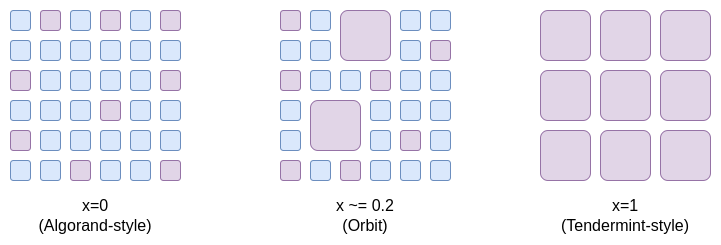Vitalik Buterin, one of the founders of Ethereum (ETH)  $2,497, published an extensive article on Warpcast on October 14, addressing the future of Ethereum post-The Merge and how the Proof of Stake (PoS) mechanism can be improved. He focused on important goals such as enabling validators to stake with a single ETH and finalizing blocks in a single slot. Buterin emphasized that there are still areas for improvement within the existing structure of the PoS mechanism.
$2,497, published an extensive article on Warpcast on October 14, addressing the future of Ethereum post-The Merge and how the Proof of Stake (PoS) mechanism can be improved. He focused on important goals such as enabling validators to stake with a single ETH and finalizing blocks in a single slot. Buterin emphasized that there are still areas for improvement within the existing structure of the PoS mechanism.
Why Should Ethereum’s PoS System Be Improved?
Buterin highlighted that two years have passed since Ethereum transitioned to PoS, during which the system has operated stably. However, he stated that it is necessary to encourage more validators to participate in the network and lower the staking minimum from 32 ETH to 1 ETH. He argued that this step would promote decentralization by incentivizing individual validators.
Another goal is to ensure that blocks are finalized in a single slot instead of taking 15 minutes. According to Buterin, fast finalization will enhance user experience and complete transactions more quickly. However, increasing speed in finalization and lowering staking limits could risk increasing the load on the system’s nodes.
Buterin’s Proposed Solutions and New Mechanisms
To achieve these objectives, Buterin proposed three different solutions. Firstly, he suggested developing more advanced signature aggregation protocols, which could allow the simultaneous processing of signatures from millions of validators.

The second solution involves “Orbit committees,” which would finalize blocks through a randomly selected moderate-sized committee at regular intervals. This method aims to achieve fast finalization with fewer validators while maintaining high security.
The third option Buterin highlighted is a two-tier staking model. In this system, validators staking different amounts of ETH will assume varying responsibilities. Validators staking large amounts of ETH will ensure economic finalization, while those staking smaller amounts will participate in block validation.
Buterin believes that all these changes will enhance Ethereum’s performance without compromising its principle of decentralization. Allowing staking with just one ETH will increase individual validators’ participation and make the Ethereum ecosystem more accessible. Additionally, single-slot finalization will ensure that users’ transactions are confirmed much more quickly.

 Türkçe
Türkçe Español
Español








